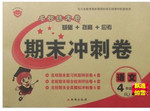题目内容
Elizabeth lived at the foot of a hill. Her father had a small 1 and about twenty sheep. Her mother was often ill and couldn't help him. The girl had to 2 the sheep when she was on holiday. She drove (驱赶) the sheep to the 3 and she liked singing there. Her voice (嗓子) got 4 and often sang some songs at parties.
5 her aunt's help, the girl began to perform (演出) when she was sixteen. And several years later she became a 6 . She often sang all over the country and a lot of people always 7 her. She got much money but she always felt tired and hoped to have 8 .
One year her mother was ill again and the doctor 9 her to spend the whole summer in a 10 place. Elizabeth decided to go to a small village which stood in the 11 with her because none of the villagers knew her and she could live a 12 life. They enjoyed themselves there. But one afternoon it began to 13 while they were having a picnic on the top of a mountain. The girl asked her mother to 14 her jacket. So she caught a cold and had to go to the 15 in a small town.
There were many 16 at the doctor's that day. The doctor was 17 . She had to wait for a long time and then the doctor asked, “What's the matter with you, madam?”
Before the girl could say a word, the telephone rang and he went to answer it. And when he was going to 18 her, the telephone rang and he had to stop 19 it again. The girl stood up and said, “Please tell me your 20 , sir.”
“What are you going to do?” the doctor asked in surprise.
“I'm going to the post office and tell you all on the phone!”
1.
[ ]
2.
[ ]
3.
[ ]
4.
[ ]
5.
[ ]
6.
[ ]
7.
[ ]
8.
[ ]
9.
[ ]
10.
[ ]
11.
[ ]
12.
[ ]
13.
[ ]
14.
[ ]
15.
[ ]
16.
[ ]
17.
[ ]
18.
[ ]
19.
[ ]
20.
[ ]
解析:
|
1.从故事内容来看,Elizabeth的父亲是农夫. 2.look after照看,看管.Elizabeth不得不照看羊群. 3.Elizabeth把羊赶到山上去. 4.从Elizabeth在全国演出来看,她的嗓子练得更好了. 5.此处是指多亏Elizabeth的姑(姨)妈的帮助. 6.从Elizabeth到处演出就能得知,她已经成了一个流行歌手. 7.Elizabeth很出名,人们也应喜欢她. 8.Elizabeth觉得很累,想要好好休息一下. 9.医生建议Elizabeth的母亲去度假. 10.夏季应当在凉爽的地方度假. 11.只有山上的小村子才可能比较凉爽. 12.Elizabeth希望休息,需要过安静的生活. 13.夏季刮风不会使人感冒,只有淋雨以后才会这样. 14.Elizabeth是让母亲穿上她的衣服,以免感冒. 15.Elizabeth有了病,就要去医院. 16.去医院看病,应该是病人. 17.医院里有许多病人,所以医生很忙. 18.Elizabeth有病去看医生,医生就要做检查. 19.stop to answer telephone意为“停下手中的活去接电话”;stop answering telephone意为“停止接电话”.根据题意,该选to answer. 20.由文中最后一句话可知,Elizabeth讽刺医生,她要打电话在电话中告诉他自己的病情.所以C项正确. |

 名校练考卷期末冲刺卷系列答案
名校练考卷期末冲刺卷系列答案When Elizabeth Kenny was a little girl, she fell off a horse and hurt her arm. Mrs. Kenny took her to a doctor in Toowoomba, Queensland. In the doctor’s, Elizabeth saw many bottles of medicine standing in a row. Since then, she wanted to be a nurse. As soon as she was old enough, Elizabeth was trained in a hospital. After working for some time, she made a surprising discovery. Among her patients were some children who had lost the use of their legs because of polio ( 小儿麻痹症) . Kenny tried putting hot cloth on their legs and washing them in a special way. The results were great. The children were able to use their legs again.
Most doctors would not believe that children could get well in such a simple way. Gradually, however, she became famous. From 1993 on people from many parts of the world brought their children to Australia to receive treatment by this wonderful nurse. She was invited to America where her methods were used in many hospitals. Money was collected to build Kenny foundations which were for polio patients. Kenny died in 1952, but she will long be remembered for her fight against polio.
1.Toowoomba is the name of _____.
|
A.a famous doctor |
B.a kind of disease |
|
C.an Australian city |
D.an Australian school |
2.The children who suffered from polio ____.
|
A.couldn’t walk |
B.couldn‘t work |
C.couldn’t speak |
D.lost their legs |
3.What was Kenny‘s surprising discovery?
|
A.there were so many polio patients around her. |
|
B.Polio children could recover in a simple way. |
|
C.Children suffering from polio had refused to use arms |
|
D.Among the children some of them suffered from polio. |
4.The best title (标题) of the text is most likely to be ____.
|
A.Methods of Treating Polio |
B.Kenny Foundations for Children |
|
C.Elizabeth Kenny, the Wonderful Nurse |
D.Hospitals for Polio Patients |
 ual profit-sharing bonus of between $3,000 and $8,000. “Employees who devoted more of their bonus to pro-social spending experienced greater happiness after receiving the bonus and the manner
ual profit-sharing bonus of between $3,000 and $8,000. “Employees who devoted more of their bonus to pro-social spending experienced greater happiness after receiving the bonus and the manner  in which they spent that bonus was a more important predictor of their happiness than the size of the bonus itself” they wrote in their report, published in the journal Science.
in which they spent that bonus was a more important predictor of their happiness than the size of the bonus itself” they wrote in their report, published in the journal Science. elp to find B. help to bring C. help to increase D. help
elp to find B. help to bring C. help to increase D. help to get
to get get much more bonus.
get much more bonus.